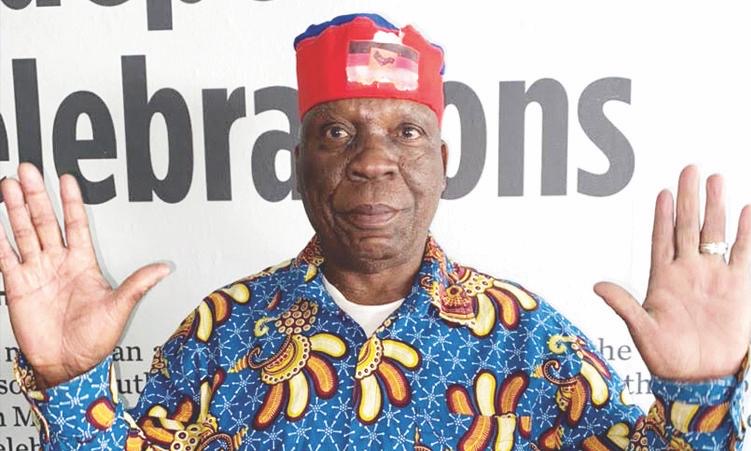THE Namibian Broadcasting Corporation will entirely depend on the government to settle outstanding liabilities of over N$300 million for its employees’ post-retirement medical aid benefits and statutory severance pay.
This was revealed by the NBC’s director general, Stanley Similo, yesterday when the corporation’s management appeared before the parliamentary standing committee on public accounts to explain some of the discrepancies from the auditor general’s report for the 2016/17 financial year.
The NBC has over the years been receiving disclaimer and adverse audit opinions from the external auditors.
The Namibian reported last year that the corporation at the time had not recognised the post-retirement medical aid benefits and the severance pay liability of over N$313 million and N$4 million, respectively, and that it had no assets set aside to fund these liabilities.
The report also revealed that the corporation had not been settling its statutory liabilities on time, thus not adhering to statutory requirements.
Similo was thus asked on how the NBC plans to pay for the stated liabilities.
He said at the moment, the NBC was not in a position to pay for the liabilities without additional funds from the shareholder (the government).
He added that although the corporation has now started recognising these liabilities, on paper, the “real challenge” was that “we don’t have the assets that can mitigate this, as rightfully pointed out”.
“Now, the exercise of recognising that liability is done on paper. But the reality around it is that that challenge still prevails, and that is the challenge that we are hoping that parliamentarians should assist us with as well,” he stated.
The NBC chief added that some of the challenges the corporation was experiencing were also as a result of budget cuts. The NBC normally receives a subsidy of about N$20 million per month from the government.
That budget, Similo said, was heavily cut by about N$8,5 million, leaving the corporation with a huge deficit.
The corporation has at numerous occasions raised the issue of inadequate funding with the board and the line ministry, but little progress has come out of these consultations, he said, adding that if the government does not increase the funds allocated to the corporation, the NBC will not maintain its operations.
“For us, it’s a matter of liquidity, and taking it from a financial perspective, we are wounded as the NBC. The biggest challenge will be when you have 30, 50 or 100 people going on retirement at once, and naturally that will hit you because the expendable resources that will be there will have to come to the fore, and that will haunt you. In order for this organisation to function, it will always find it difficult because it is not a fully commercial business,” he stressed.
Similo added that the inadequate funding of the NBC somehow shows that politicians do not appreciate the work that the NBC does.
“We are not a commercial entity, and if the shareholders don’t come and recapitalise the business, it will remain a challenge. We will depend on that [public funding], unless if the model of doing business changes,” he noted.
On the management issues raised in the auditor general’s report, such as the restatement of annual financial statements and adjustments to accumulated depreciations, Similo said the NBC has made significant progress to rectify the issues.
“Despite the challenges that are there, there is significant movement that seeks to say things are moving in the right direction. Our belief is that things are moving in the right direction by virtue of how we have managed to narrow the issues that have been stated by the auditor general,” he added.
At the same occasion, NBC’s chief financial officer, Sadia Brendell, revealed that employees who were recruited from 2015 to 2019 were not included in the N$313 million liabilities. She said the company at the moment has put on a limitation, and that “people who were appointed after January 2015 will not qualify for that benefit”.
“It is so significant to us, and it is close to our annual budget. We don’t have the funds to set aside for that, but at least we know we have a liability to that effect,” she continued.
NBC’s troubles with employees’ benefits as well as medical aid and pension obligations were eased by the government late last year.
The corporation was bailed out with N$20 million in October after its employees went on a week-long strike, demanding that their benefits be paid. The mismanagement of funds is not new at the NBC.
Last year, The Namibian reported how the state broadcaster failed to account for 2 000 decoders during the 2015/16 financial year.
The corporation also had no control over television licence books, and revenue generated during that financial year.
According to the auditor genreral’s report, TV licence income was recognised on bank deposits and amounts receipted.
The report further stated that although a database of licence holders was in place, neither the corporation nor the auditors could rely on it as sufficient basis to determine revenue “as validation checks on data are still to be done by the corporation”.
Stay informed with The Namibian – your source for credible journalism. Get in-depth reporting and opinions for
only N$85 a month. Invest in journalism, invest in democracy –
Subscribe Now!







